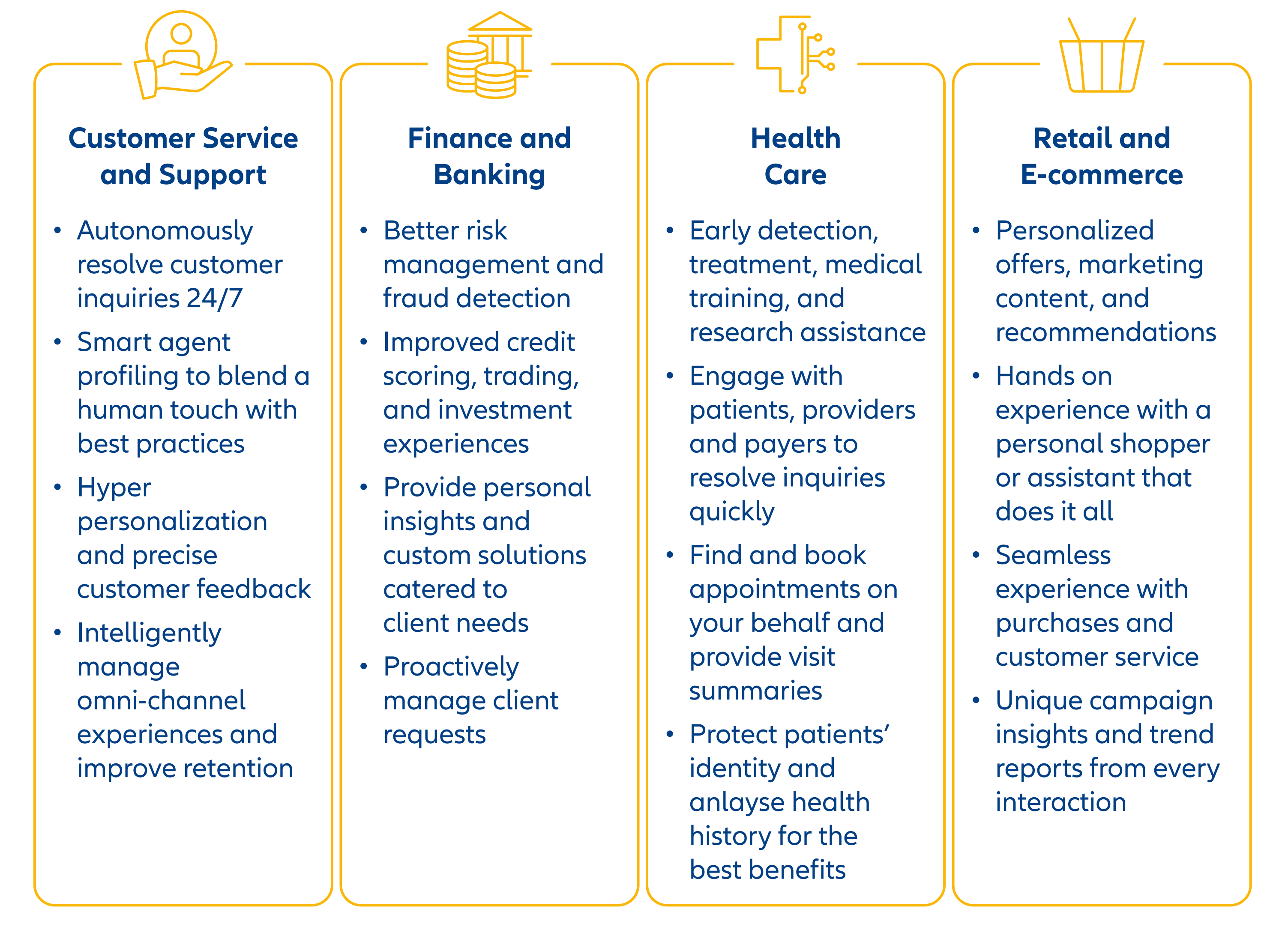Two-Minute Tech
Beyond chatbots: AI agents automate tasks and transform businesses

Imagine a future where the mundane tasks on your to-do list are tackled by a digital assistant that thinks, learns and acts like a human. It’s closer than you think, thanks to AI agents
— a new wave of intelligent software poised to disrupt industries and revolutionize productivity.
- Unlike traditional chatbots, AI agents can learn from data, understand context and make dynamic decisions, enabling them to tackle complex tasks independently.
- By automating repetitive and low-value tasks, AI agents could free up employees to focus on strategic work, leading to significant jumps in productivity and value generation.
- AI agents can be specialized for various domains, benefiting sales teams, customer service, and more — with early adopters already seeing improvements in efficiency and profitability.
Every job is essentially a collection of tasks, and even in today’s highly digitalized business environment, humans still do most of them. But AI agents could change this dramatically.
Traditional software applications have been great at enhancing productivity and automating certain tasks, but they’re bound by static rules-based programming. AI agents, on the other hand, have human-like decision-making capabilities, allowing them to build contextual understanding and deliver better solutions. As a result, we’re seeing a new wave of AI applications — one that we believe will deliver massive, disruptive jumps in productivity and value generation.
What are AI agents?
AI agents are essentially highly advanced software applications that can learn from data and dynamically take action, tackling tasks such as customer service, content creation, data analysis and sales prospecting.
They use conversational interfaces like chatbots do, but they differ from traditional chatbots in several key ways:
- Chatbots are powered by large language models (LLMs) and rely on pre-set rules and scripted responses. They are great at conversation but stop short of action.
- AI agents don’t just chat — they act. They are powered by large action models (LAMs) that shine in context-aware interactions. This can turn AI agents into proactive assistants that handle a variety of different tasks with great precision, as the following illustration shows.
Why AI agents matter
A recent study shows that approximately 41% of employees’ time is dedicated to repetitive, lowvalue tasks. Yet employees already see the benefits of AI: 65% of desk workers anticipate that generative AI will enable them to focus more on strategic work.1 A wide variety of workflows should be able to benefit from AI agents executing across diverse environments, automating repetitive or complex tasks. This, in turn, should help employees become more productive.
The level of independence and decision-making exhibited by AI agents is unprecedented, helping companies across the enterprise:
- Sales teams use AI agents to find new customers by engaging with inbound leads, arranging meetings and sending tailored follow-up emails.
- Marketers use AI agents to craft blog posts, produce case studies, and generate more content. They can also collect insights on social media trends and suggest ways to apply them to a company’s content strategy, enhancing engagement.
- Customer service teams have used AI agents to handle inbound inquiries without human intervention, achieving significantly higher deflection rates. AI agents can help lift customer satisfactions scores with answers that are provided more quickly with high levels of clarity.
Key characteristics of AI agents
- Agents work autonomously, performing tasks from start to finish.
- They’re often built for specialized tasks, such as handling customer inquiries, generating marketing content or managing social media posts.
- Agents rely on datadriven insights to make decisions and optimize outcomes.
The bottom line
While the deployment of AI agents is still in its beginning phases, many companies have been working with AI agents in private beta for some time. Some early adopters say it has helped reduce headcount, increase efficiency and significantly improve profit per employee. Yet companies are also taking the opportunity to continue deploying AI responsibly, aiming to ensure transparency, fairness and accountability.
We believe we are in the early stages of a paradigm shift where AI will not only be an assistant that provides useful information, but one where AI agents can help complete tasks on our behalf — ushering in a new era of automation and productivity gains.

Source: Voya Investment Management
1 Source: Salesforce, 04/24








